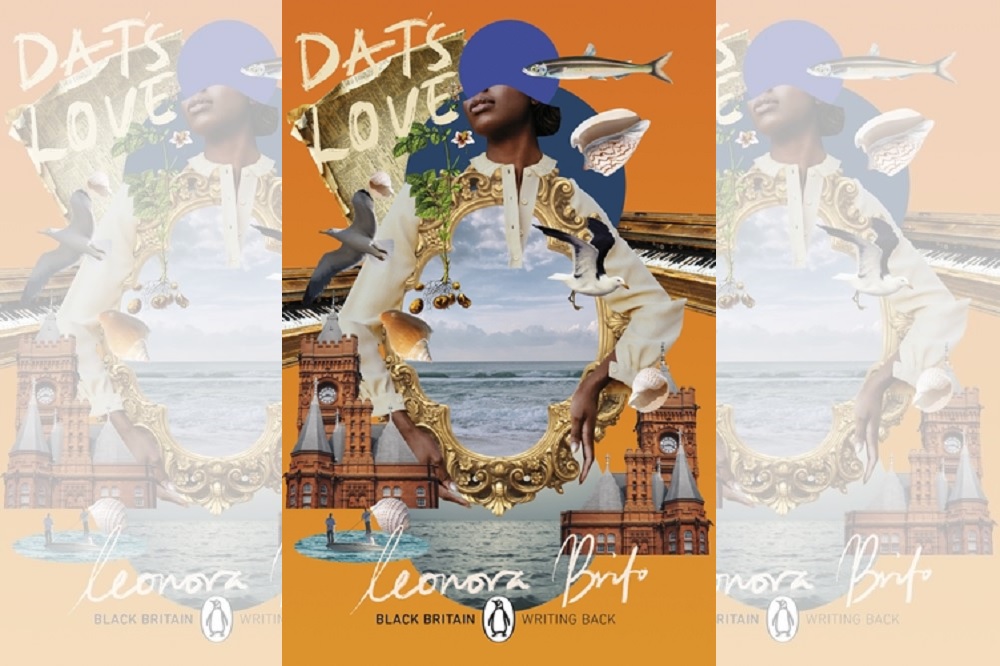Review: Dat’s Love by Leonoro Brito

Jon Gower
This scintillating collection offers ample testament to Leonoro Brito’s gifts when it came to crafting a short story. Dat’s Love conjures into being a vivid and vital picture of life in Cardiff’s Tiger Bay before it was seemingly declawed to became simply Cardiff Bay. They range widely, taking in dockland funerals and basketball contests, a visit of Winston Churchill to Wales and life in eighteenth century England and much, much more.
As Booker prize-winning novelist Bernardine Evaristo puts it in her introduction, Brito was an ‘admirably versatile and ventriloquist writer, she convinces with her characters…’ who are rendered in a voice that is ‘magical, enigmatic, distinctive, accomplished and haunting.’
Throughout, Brito’s communicable zest for language fizzes like a seltzer, not least when she evokes that busy cast of characters, employing a great eye for telling detail. There’s Claire Tumely, for instance, who had ‘eyes like glass alleys and dark, curled hair. She wore pastel-coloured skirts with the pleats as ri
gid as the pleats on a sea-shell…’ A priest’s face is ‘moist and white as an unbaked loaf, risen and unwrapped for the oven. And she evokes the life and colours of nature just as well, from the sky which is the dark blue of a ‘Milk of Magnesia bottle’ through potato plants with ‘spriggly leaves of deep dark green’ to a dog’s furry body which is ‘like suede, like a mountain of hush puppies.’
Some of the stories tumble and flow along as a stream of consciousness, which takes the reader along with it. We find a patient in bed in the tale called ‘In Very Pleasant Surroundings’ who paints us a picture of her plight and allows us to hear her sick-bed ponderings, the burble of her inner mind:
‘Slowly, slowly, the tide comes in so slowly. And here I lie, like a narrow shadowed stone. Bluish, thin-pinched, waiting to take on that roseate Picasso glow. Another period, but for how long? Who knows? My consultant is as cautious and inconstant as a weather-man. You cannot pin him down and I don’t want to.’
Maritime
That marine and maritime theme continues as the story unfolds, when the patient asks if she will float ‘inside this body which has become an ark of bones. My ribcage, feel: here are the struts of my rowing boat, already in place…’
It’s there in other stories, too, such as ‘Mother Country’ in which a woman hears the heart-beats of her baby pounding like footsteps from the monitor, trampling their way through, ‘forcing a Panamanian birth-canal through the isthmus of my body.’
There’s a lot of music, too, from remembered songs by Nat King Cole or Sarah Vaughan, from ‘Only the Lonely’ to ‘Moon River’ which all add up to a sort of soundtrack entirely in keeping with the musicality of Brito’s prose.
Seafaring
Leonoro Brito often contrasts the world of adults and children and does so most effectively well. In ‘Roots’ a fourteen-year-old girl, Marcia Angela Tobin, ponders what being that age actually means, seeing herself becoming more curious, playing detective more and more and watching everyone around her much more closely.
The way her sea-faring father counts things over and over, from the change in his pockets to the minutes on the clock and the way that is echoed in verbal tics where he often repeats himself.
She marks the passage of time by the growth of vegetables in the garden and, considering her own nature says that all she can see inside her head is a ‘garden of chlorophyll green.’ And becames aware of men, some predatory, who are taking more of an interest in her.
Rainbow’s end
The stories, principally written as Cardiff Bay was inundated into being, as a watery copy of Baltimore’s Inner Harbour, document that change in both geography and community attentively and entertainingly.
A man called Oscar riffs on the past as if his words are playing jazz, recalling a colourful time when ‘this one square mile…’‘…was like the New Orleans of a great coaling Metropolis. The days when people thought they’d reached the end of the rainbow, when they reached this spot.’
Neglected
The stories in the collection also reach further into the past, exploring the real lives of historical, if neglected figures, such as former slave Dido Elizabeth Bell who grew up in a stately home as the great-niece of Lord Masefield and abolitionist Ignatius Sancho, who was born into slavery but led a remarkable life in London as a composer, writer and shopkeeper.
Brito became a full-time writer in the early 1990s but died in 2007 so Dat’s Love is the cornerstone, and has to be, of her literary legacy.
Fittingly, it’s a high-water mark in Welsh fiction, with stories that have a real sense of a real place and stand proud on the shelf, and show us people standing equally proudly, their backs unbent, even though, in life, they are buffeted by some pretty stormy weather.
Dat’s Love by Leonoro Brito is published by Penguin in the Black Britain Writing Back series. It is available from all good bookshops.
Support our Nation today
For the price of a cup of coffee a month you can help us create an independent, not-for-profit, national news service for the people of Wales, by the people of Wales.







I have never known the (then)residents ever refer to Tiger Bay,they used to say ‘the bay’or ‘the docks’.I don’t get out much these days so I don’t know what they say now.